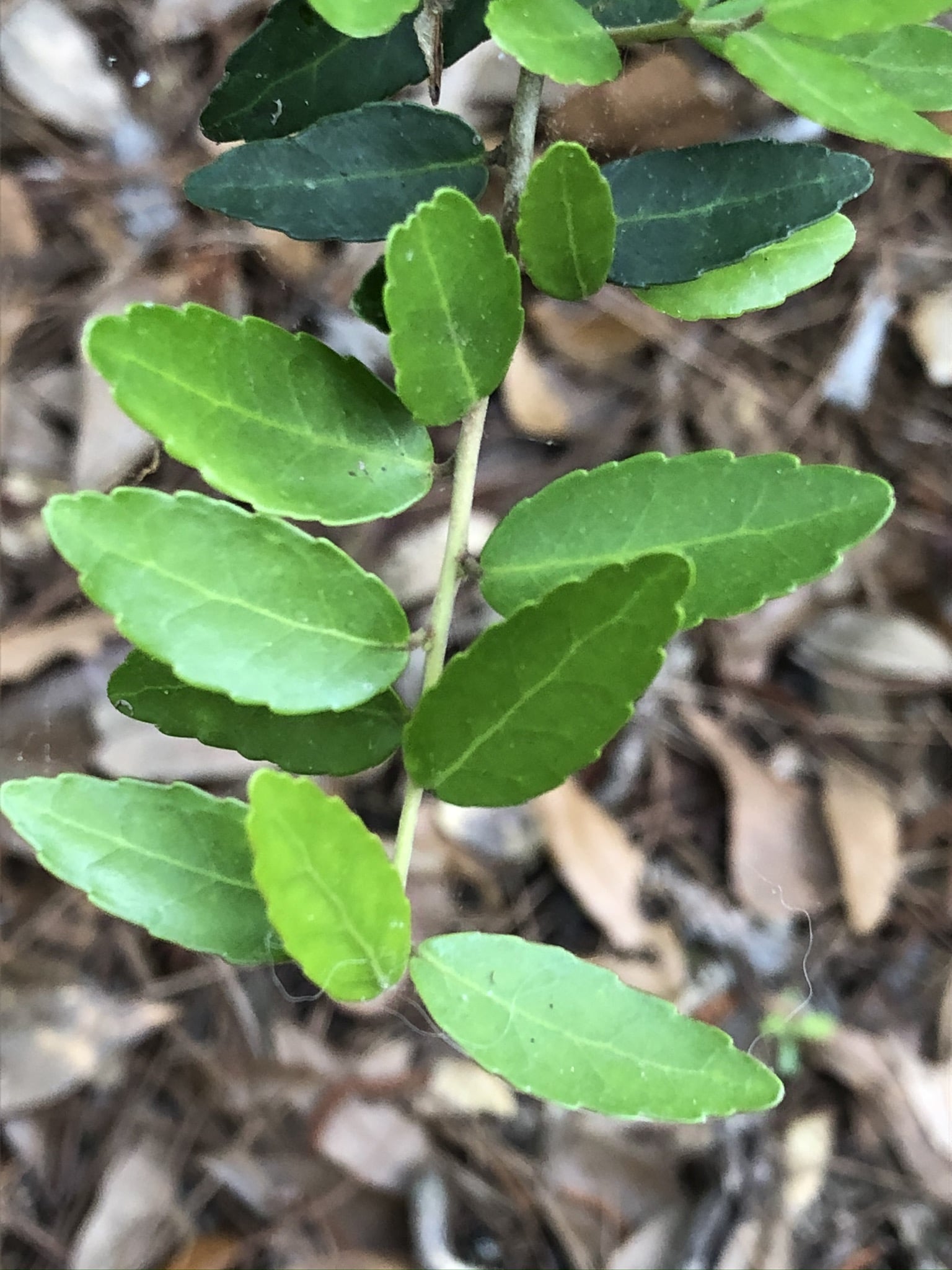Tired of the same old coffee or same old tea? OK, just kidding about the coffee 😊. But, if you are looking for a change of pace with your choice of hot or cold drink, you might try a bit of tea made from a backyard plant – one of the most common shrubs around – Yaupon Holly.
Yes, this is the same plant that you have heard will make you sick should you eat the bright red berries. Yaupon’s scientific name says it all, Ilex vomitoria. Native American warriors were said to imbibe to the point of “cleansing” themselves before battle. In any case, you would have to imbibe quite a bit for the effect.
These same first Americans used the leaves of this plant to make “black drink.” This is one of the only native plants known to contain caffeine. Roasted to whatever degree you wish, Yaupon tea is a dark, but pleasant tasting drink, hot or cold.
Processing is simple. Leaves are easy enough to strip from the pliable branches using your fingers. You can wash them if you wish or simply lay them out on a baking sheet and roast them at 300 to 325 degrees. I roast mine for 45 minutes to an hour. The longer you go the darker the color.
Use as much as you like for a cup or ¾ of a cup of leaves for a gallon of cold tea: a recipe used by my friend Benny McCoy. Sweetened or not, this is a refreshing change of pace from the store-bought fare. And this is but one of many other plants that make interesting drinks.

Brew up a batch and enjoy a change of pace.
Hope to see you in our great outdoors!